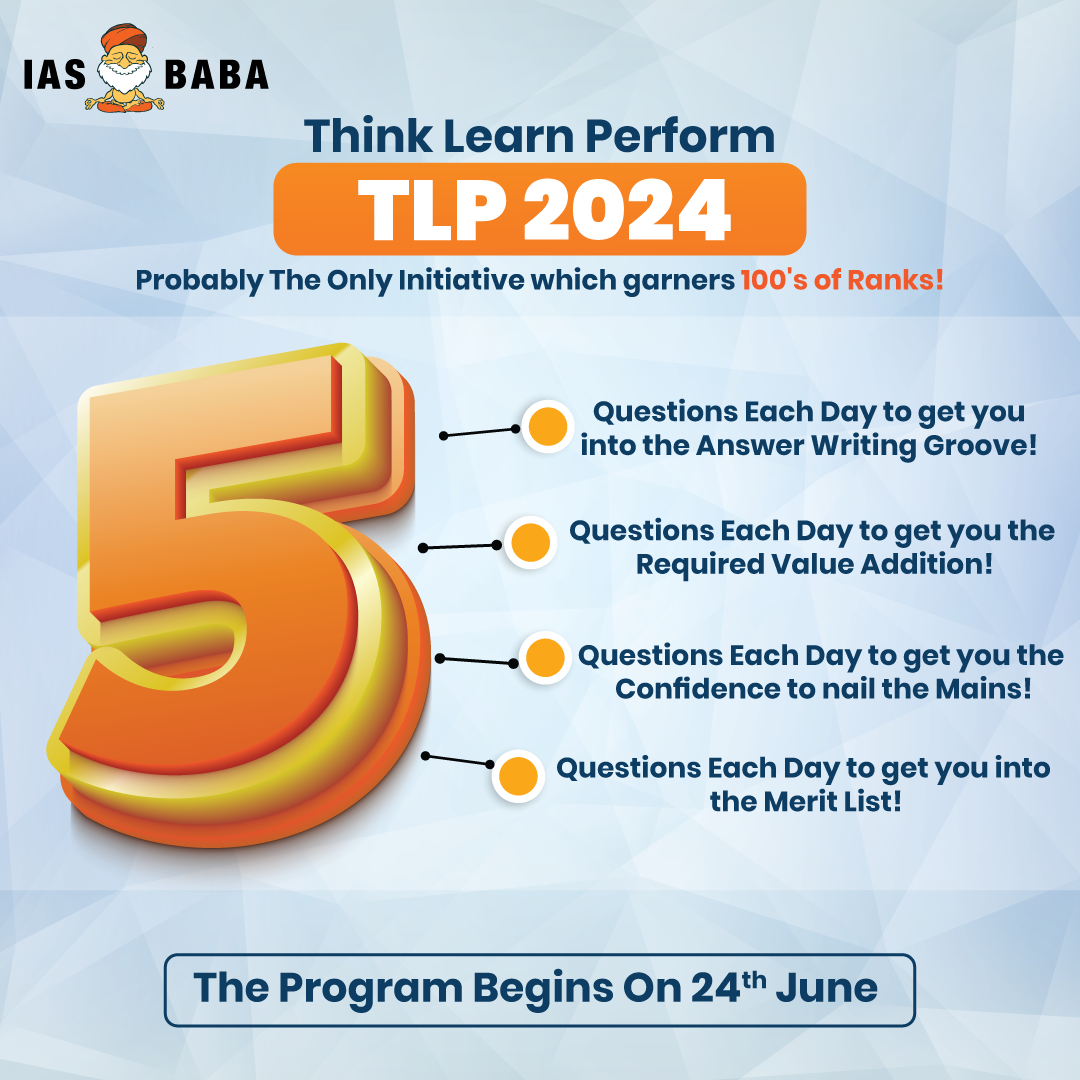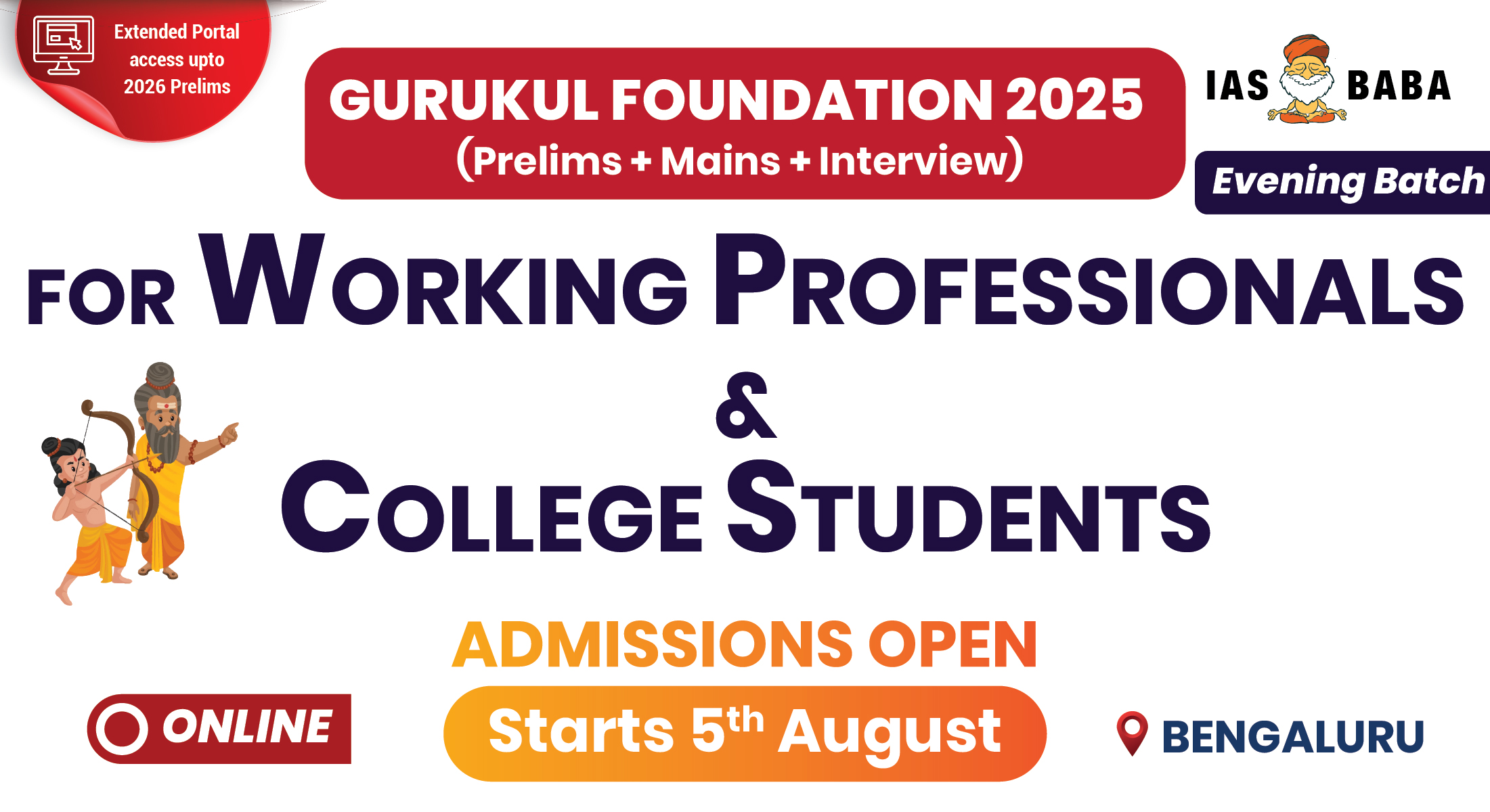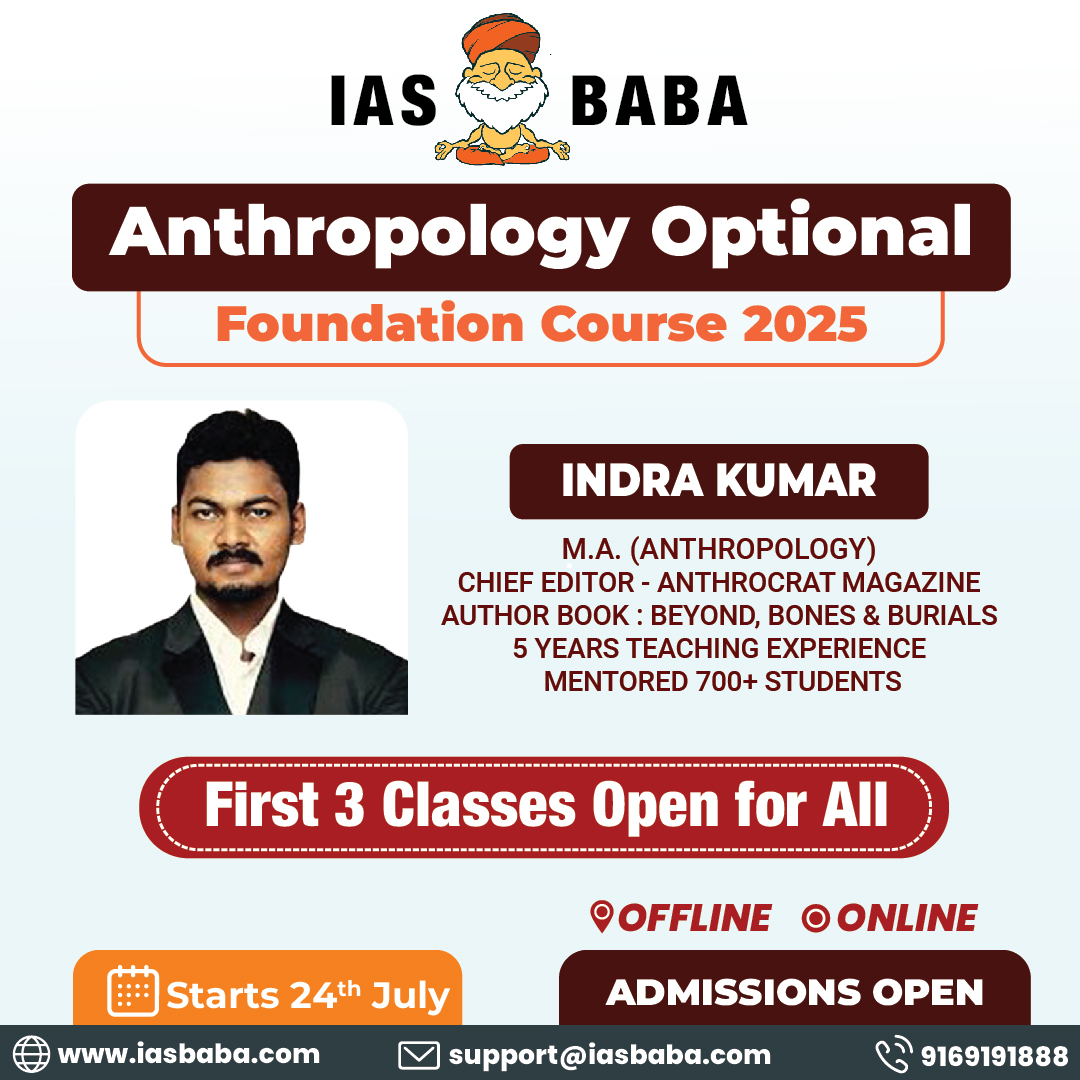GS 1, Indian Society, TLP-UPSC Mains Answer Writing
1. The prevalence of caste politics in India is an indicator of retrograde political attitude. Do you agree? Critically comment.
भारत में जाति की राजनीति का प्रचलन प्रतिगामी राजनीतिक रवैये का सूचक है। क्या आप सहमत हैं? समालोचनात्मक टिप्पणी करें।
Demand of the question:
It expects students to write about what role do caste politics play to influence political attitude in Indian political scenario. It also expects students to analyse both aspects of whether prevalence of caste politics in India is an indicator of retrograde political attitude or not.
Introduction:
Theoretically speaking caste and democratic political system stand for opposite value
systems. Caste is hierarchical. On the other hand, democratic political system advocates freedom to an individual and equality of status. Despite this contradictory nature, caste has influenced Indian political attitude.
Body:
Politics does not function in vacuum. It operates in society in which it-is influenced
by social forces and social forces are also influenced by political attitude too. In this perspective caste’s influence on Indian Political attitude can be seen in following ways:
- Caste as a social stratification system is a salient feature of Indian society which has influenced the structure of society in socio-economic and political scenario.
- Political Socialisation: ‘Caste values’ and caste interests influence persons political thinking, awareness and participation.
- Caste and nomination of candidates: Due to this process of political socialisation of caste, ‘caste consciousness’ arouses among people.
- While nominating their candidates from different constituencies the political parties keep in mind the cast of candidate and caste of the voters in that particular constituency. It in turn affects democratic ideals of equality, justice.
- Caste and voting behaviour: In the election campaigns, votes are demanded
in the names of caste. Which in turn affects peoples’ thinking as people tend to vote to the candidate who takes interest in solving their castes problem only.
- Caste as divisive in Indian Politics: At times it leads to an unhealthy struggle for power and acts as a divisive force.
- Caste and organization of government: The caste factor affects state government policies and decisions. The ruling party tries to use its decision-making power to win the favour of major caste groups.
- Regional political power for furthering the interests of the caste groups which support or can support their regimes.
- Social and political tensions: The provisions made for the protection of
interests of scheduled castes & tribes have also disturbed the social harmony in the Indian society.
But, at the same time prevalence of caste politics has resulted in the welfare and development of marginalised sections of society in following ways.
- Caste as cohesive force in Indian Politics: It is a source of unity among the members of groups and acts as a cohesive force.
- Prevalence of caste politics in India also resulted in the enactment of legislations to protect the rights of disadvantaged and marginalised sections of society. e.g. Prevention of atrocities against SC & ST‘s Act -1989, Protection of Civil Rights Act-1976.
- Many caste based political parties are working more efficiently to solve the problems of their respective castes people.
Though prevalence of caste politics in India has contributed in some way to modernize political attitude it doesn’t indicate that it is the way through which welfare of marginalised and disadvantaged sections can be achieved.
The following points should also need to be considered to neutralise the role of prevalent caste politics in political attitude:
- The politician should rise above the politics of caste.
- Remodelling of education system on secular lines should take place which in turn help to have a more egalitarian society and will lead to change in political attitude.
- All schools must encourage community living by organizing community meals and all students should be included in it. It will result in empathy and compassion for fellow human beings.
Conclusion:
Overall it is observed that, caste has been politicised to pursue economic and social interest rather than achieving the democratic ideals of justice, equality and fraternity. This process has reached an impasse and caught into vicious circle. Hence, we need to do away with the prevalent caste politics, which will definitely result in elimination of retrograde political attitude and achieve the more egalitarian social order.
















